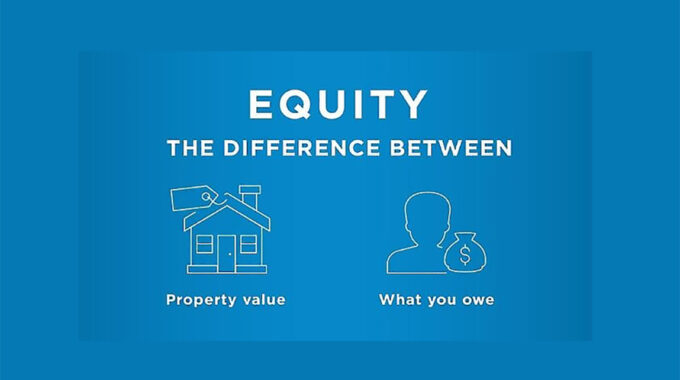Explore our tailored asset-based loans for restaurants in Costa Rica, designed to fuel growth and secure your business's future success.

Understanding Home Equity Loans: A Comprehensive Guide
Understanding Home Equity Loans in Costa Rica
In finance, Understanding Home Equity Loans in Costa Rica is a topic of significant importance. Home equity loans have emerged as a viable solution as homeowners in Costa Rica continue to explore ways to leverage their property’s value for financial gain. These loans, which allow homeowners to borrow against the equity in their homes, offer a range of benefits, including flexibility and the potential for large loan amounts. However, like any financial product, they also have certain risks and considerations. This article aims to provide a comprehensive understanding of home equity loans in Costa Rica, helping homeowners make informed decisions about their financial future.
The Concept of Home Equity Loans
Home Equity Loans work by allowing homeowners to borrow against the equity in their property. The equity is the difference between the market value of the house and any outstanding mortgage payments. This type of loan is different from other loans, such as personal loans or credit card loans, as it uses your home as security.
The Process of Acquiring Home Equity Loans in Costa Rica
The process of acquiring a Home Equity Loan in Costa Rica involves several steps. First, the borrower must have a clear understanding of their financial situation and the equity available in their home. Next, they need to approach a lender, such as a bank or a private lender, and fill out an application. The lender will then evaluate the application, the borrower’s credit history, and the value of the home before approving the loan.
Advantages of Home Equity Loans
Home Equity Loans offer several advantages. They can provide significant financial benefits, as the loan amount can be substantial, depending on the equity of the home. They also offer flexibility, as the funds can be used for various purposes, including home improvements, education, or debt consolidation. Furthermore, Home Equity Loans often have lower interest rates compared to other types of loans.
Risks and Considerations
While Home Equity Loans offer many advantages, they also come with potential risks. The most significant risk is that if the borrower cannot repay the loan, they risk losing their home, as it serves as the collateral for the loan. Therefore, it’s crucial to consider your ability to repay the loan before applying. It’s also essential to shop around and compare loan terms from different lenders. For information on the regulatory environment, visit Superintendencia General de Entidades Financieras (SUGEF).
Gap Equity Loans: Your Partner in Acquiring Home Equity Loans in Costa Rica
Introduction to Gap Equity Loans
Gap Equity Loans is a leading financial institution in Costa Rica that specializes in providing Home Equity Loans. They offer a range of services designed to help homeowners leverage the equity in their homes for financial gain.
Why Choose Gap Equity Loans for Home Equity Loans
Choosing Gap Equity Loans for your Home Equity Loan needs has several unique advantages. They offer:
- Quick and easy loan approval process
- Competitive interest rates
- Flexible loan terms
Moreover, they have a record of satisfied customers who appreciate their efficient service and customer-centric approach.
How Gap Equity Loans Simplifies the Process
Gap Equity Loans simplifies loan acquisition by providing precise and straightforward procedures. They offer support at every step of the process, from the initial application to the final loan disbursement. They also provide resources and guidance to help borrowers understand the terms and conditions of the loan. For more information on the services offered by Gap Equity Loans, visit their official website.
Gap Equity Loans’ Terms and Conditions
The terms and conditions of Gap Equity Loans are designed with the borrower’s convenience in mind. They offer flexible repayment options and competitive interest rates. The terms are clearly explained to the borrower before the loan agreement is signed, ensuring transparency and understanding.
Conclusion
Understanding Home Equity Loans in Costa Rica is crucial for homeowners looking to leverage their home’s equity. Gap Equity Loans is an ideal choice for these loans due to their simplified process, customer-centric approach, and flexible terms. By choosing Gap Equity Loans, homeowners can unlock the financial potential of their homes and meet their financial goals.
-Written by Glenn Tellier (Founder of CRIE and Grupo Gap).
*Loan Request Form
Frequently Asked Questions
What is a Home Equity Loan?
A Home Equity Loan is a type of loan where the borrower uses the equity of his or her home as collateral. The loan amount is determined by the value of the property and the homeowner’s equity in it.
How does a Home Equity Loan work?
A Home Equity Loan allows you to borrow against the equity in your home. The equity is the difference between the market value of your house and any outstanding mortgage payments.
What are the benefits of a Home Equity Loan?
The benefits of a Home Equity Loan include potential access to large amounts of money, lower interest rates compared to other types of loans, and the possibility to use the loan for various purposes such as home improvements, education, or emergencies.
What are the risks of a Home Equity Loan?
The main risk of a Home Equity Loan is that your home serves as the collateral for the loan. This means that if you fail to make repayments, you could potentially lose your home.
How can I get a Home Equity Loan in Costa Rica?
You can get a Home Equity Loan in Costa Rica by approaching a lender, such as a bank or a private lender like Gap Equity Loans, and filling out an application. The lender will then evaluate your application, credit history, and home value before approving the loan.
What happens if I can’t repay my Home Equity Loan?
If you can’t repay your Home Equity Loan, the lender has the right to foreclose on your property, as it serves as the collateral for the loan. This is why it’s crucial to consider your ability to repay the loan before applying.
Is it better to take out a home equity loan?
Whether it’s better to take out a home equity loan depends on your individual circumstances and financial goals. A home equity loan can be a good option if you have a significant amount of equity in your home and need a large amount of money for a specific purpose.
What is the payment on a home equity loan?
The payment on a home equity loan depends on the amount borrowed, the interest rate, and the loan term. You can use the loan calculator on the Gap Equity Loans website to estimate your potential payments.
What is a major advantage of a home equity loan?
A major advantage of a home equity loan is that it allows homeowners to leverage the equity in their homes to obtain a large amount of money. This can be used for various purposes, such as home improvements, education, or debt consolidation.
Contact us for more information, or fill out a loan request now!
Need Residency status in Costa Rica? – Click HERE.
Looking for Real Estate? – Click HERE.
Want to invest? – Click HERE.
Article by Glenn Tellier (Founder of CRIE and Grupo Gap)






This Post Has 0 Comments